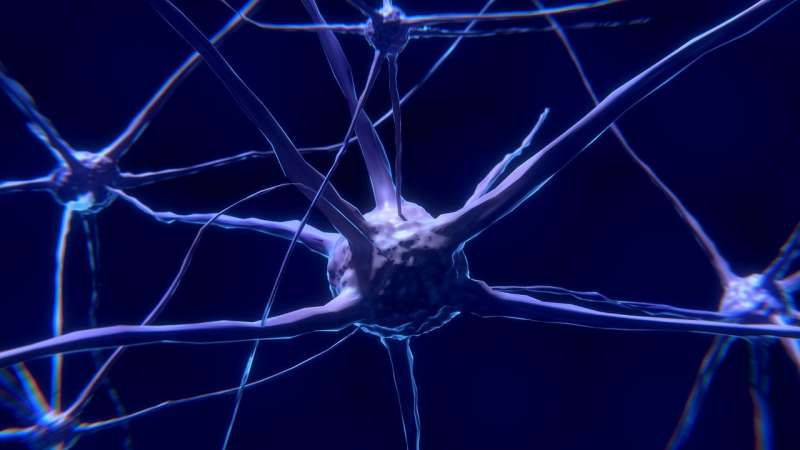Credit: CC0 Public Domain
A newly discovered nerve pathway that connects the foot and the face on the same side of the body may potentially provide explanations to unknown neurological conditions, according to new research led by Curtin University.
The research, published in Frontiers in Neuroscience, discovered a nerve pathway that runs down the same side of the body, potentially bypassing a damaged spinal cord, which could explain neurological conditions such as referred itch and some types of migraine.
Lead author Adjunct Associate Professor Dr. Morry Silberstein, from the School of Molecular and Life Sciences at Curtin University, said the spinal cord played a crucial role in the functioning of the human body, including the movement of our limbs.
"An intact spinal cord is critical, as messages or transmissions are sent to the limbs through the spinal cord from the brain. Previous researchers have explored ipsilateral sensory transmission, where people experience referred pain or sensation on the same side of the body, by placing a healthy person's foot in painfully cold water that caused increased blood flow to the same side of the face," Dr. Silberstein said.
"We wanted to test if this was also the case for spinal cord injury patients and by applying the same technique, we were able to show similar blushing in the face. We then managed to stop this response by temporarily knocking out small fibre nerves in thigh skin on the same side of the body by using a topical cream called capsaicin, potentially bypassing the spinal cord."
Dr. Silberstein explained that further research was needed to determine whether this newly discovered nerve pathway may be applied in helping spinal cord patients to learn to walk again.
"Our initial findings offer very promising outlooks for this type of injury and perhaps one day it may be possible to train spinal cord-injured patients to recognise facial flushing as an indicator of foot impact on the ground," Dr. Silberstein said.
"There is still a lot to learn about this newly discovered pathway and it is recommended that larger groups of patients with spinal cord injuries are tested to see if similar results are found."
More information: Morry Silberstein et al. A Human Sensory Pathway Connecting the Foot to Ipsilateral Face That Partially Bypasses the Spinal Cord, Frontiers in Neuroscience (2019). DOI: 10.3389/fnins.2019.00519
Journal information: Frontiers in Neuroscience
Provided by Curtin University























